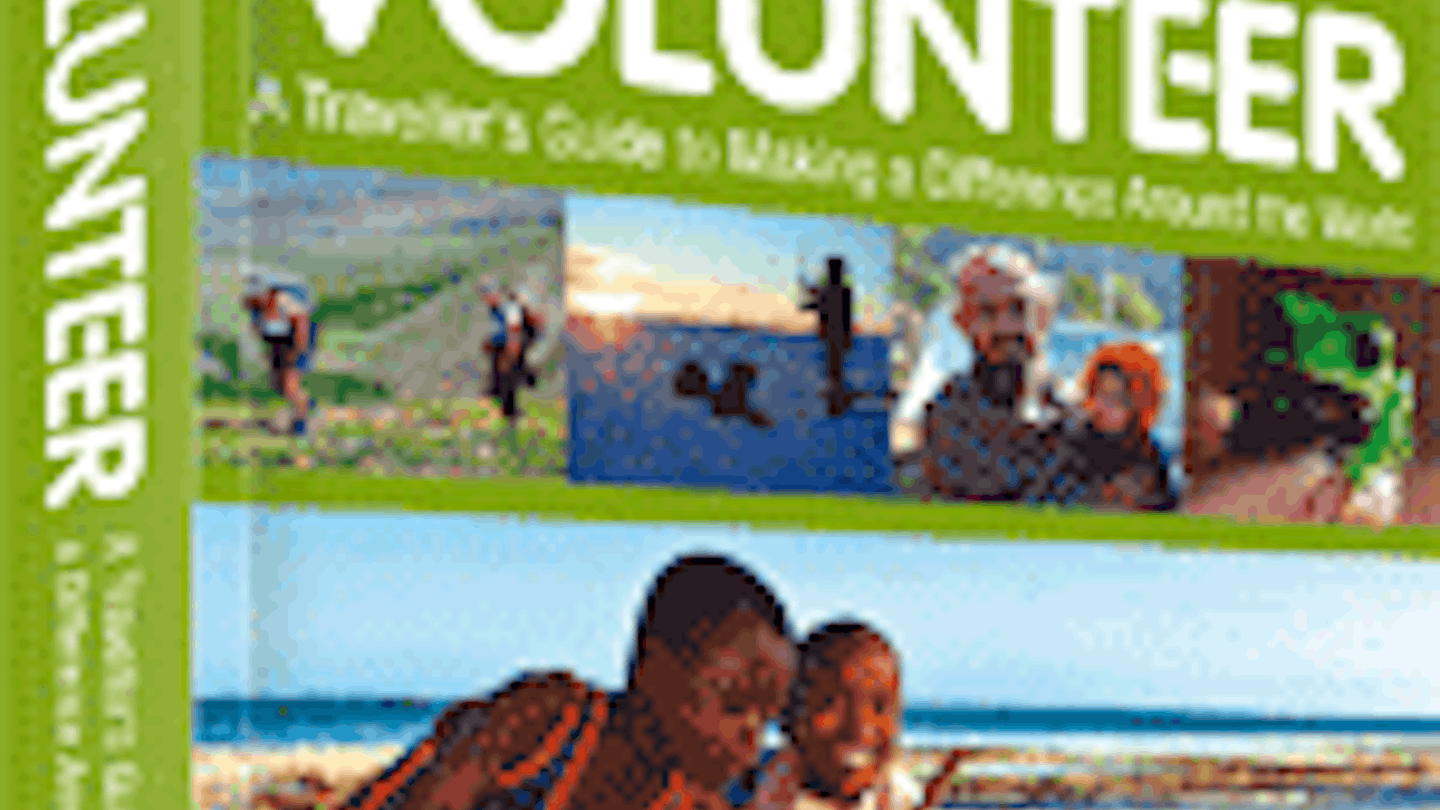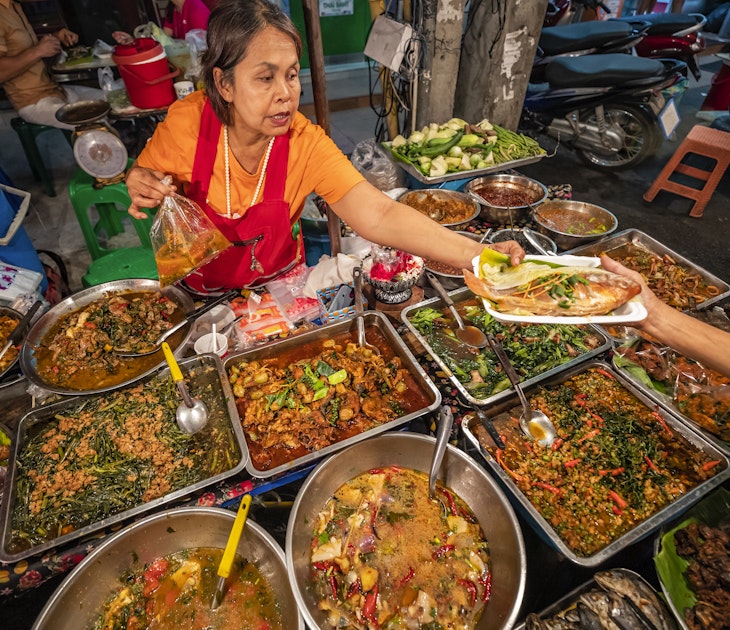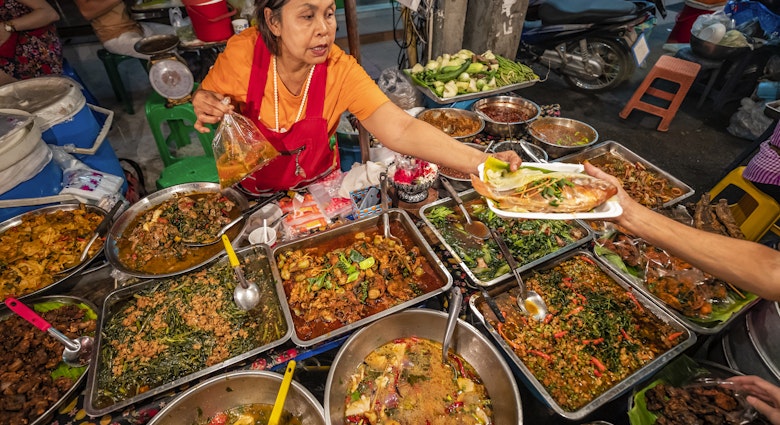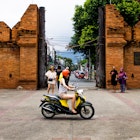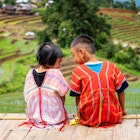For an increasing number of travellers, going on holiday doesn’t mean lazing on a beach or touring sights. Instead, it involves spending their vacation time volunteering in local communities. Whether it’s working with children in orphanages, helping to build houses, or teaching English, so-called voluntourism is a fast-growing sector of the travel industry.
But the popularity of orphanage tourism across Southeast Asia in particular is a highly controversial development. Now, it has sparked a global debate about the ethics and merits of volunteering; one involving the United Nations Children’s Fund (UNICEF), aid organisations, and travel and tour operators around the world.
At its most basic, orphanage tourism can mean visiting an orphanage for a few hours as part of scheduled tour that also involves more conventional activities such as sightseeing. Some people, though, choose to spend longer periods volunteering in orphanages, paying for the opportunity to play and read with the children, or teaching them English.
Many volunteers find the experience highly emotive and uplifting, life-changing in some cases, while even those who visit for only a few hours can feel that their donations will make a difference to the lives of the orphans. But for many aid organisations, orphanage tourism is an unwelcome phenomenon; one that turns the most vulnerable members of society into mere tourist attractions.
'Ask yourself whether a similar situation would be allowed in your own country: busloads of tourists pouring into a children’s home for fleeting visits, being allowed to interact with and photograph the children? No it wouldn’t,' said Ngo Menghourng, the Cambodia communications officer for the NGO Friends International.
In conjunction with UNICEF, Friends International launched a campaign in October 2011 to put a stop to orphanage tourism in Cambodia. 'Orphanage tourism lays children open to exploitation, puts them at risk through unregulated visitation and fuels bad practise in relation to residential care for children,' said Ms Ngo.
Orphanage tourism is now prevalent across Southeast Asia. In the north of Thailand, especially around Chiang Mai, numerous orphanages are populated by the children from Thailand’s ethnic minority hill tribes, long the most disadvantaged people in Thai society. A number of orphanages in the south of Thailand too, charge up to US$400 a week for volunteers to spend time with children supposedly orphaned by the devastating 2004 tsunami.
Elsewhere, orphanage tourism is a growing venture in Laos, with orphanages around Luang Prabang attracting many volunteers, while there are also opportunities to work in orphanages in Vietnam. And now that Myanmar (Burma) has emerged as the hottest destination in Southeast Asia, the phenomenon has spread there too. The most respectable orphanages in Myanmar, though, do not ask for foreign volunteers, but for people to contribute much-needed items like vitamins, pencils and pens and toys.
It is Cambodia, though, which is by far the most popular country for orphanage tourism. Siem Reap is a particular hotspot because it is the gateway town to Angkor Wat, Cambodia’s principal tourist sight, and almost every traveller passes through there. Rising visitor numbers to Cambodia have helped drive a dramatic increase in orphanages. According to UNICEF, there has been a 65% rise in the number of orphanages in Cambodia since 2005. Now, there are more than 300 in the country, yet only 21 of those are run by the state.
Many of those orphanages have been set up solely to make money from visitor donations and volunteer fees. 'It’s now potentially a lucrative business to run an orphanage,' said Ms Ngo. 'Market it the right way and people can be relatively easily conned into handing over money to organisations which lack even basic standards of childcare.'
Worse still, is the fact that a number of people, including foreigners, who have set up orphanages are sexual predators and a few have been prosecuted for abusing the children in their care. 'The majority of these places have no firm child protection policy in place. Some even allow visitors to take children away on day trips,' said Ms Ngo.
Few volunteers are aware too, that most of the children they will work with are not orphans. UNICEF estimates that 72% of the 12,000 or so children in Cambodian orphanages have at least one living parent, or other close relations. Desperate poverty, though, makes it easy to persuade uneducated families that their kids will be better off in an orphanage. A similar situation occurs in northern Thailand, where hill tribe families are told their children will receive an education by living in an orphanage.
When the children are orphans, there is the fear of long-term psychological damage from the kids bonding with volunteers, only to see them disappear from their lives after a couple of weeks. It is questionable too, what real impact volunteers can have if they lack specific training in child care or medicine. While people may think orphanage tourism offers the chance to do good, the reality is often very different.
Volunteering tips
- Child-welfare experts recommend that any volunteering concerning children should involve a minimum three-month commitment – having strangers drop in and out on short visits can be detrimental to a child's emotional well-being and development. Note that some organisations, such as Friends International and Unicef, recommend that travellers never volunteer in an orphanage.
- If you do volunteer, think hard about what skills you have that will make a real difference to the children – working with the local staff, for example, to teach them English is likely to have a more sustainable impact.
- Don’t – under any circumstances – visit orphanages as part of a brief tour or go to any that actively solicit tourists.
- Don’t hand over large fees for a placement without checking where the money goes.
- Don’t volunteer at any orphanage without thoroughly researching it. Is it regulated? Do they require background checks on volunteers?
Further information on orphanage tourism
Want to do some good on your travels? Pick up a copy of Lonely Planet's Volunteer: a traveller's guide.
